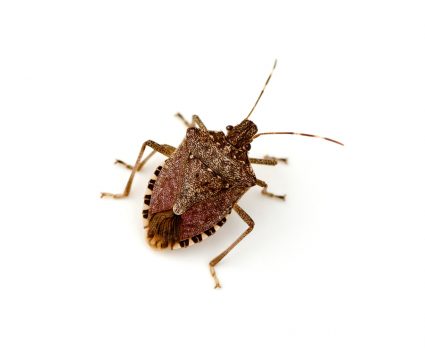
Keeping bugs away from your home and garden might seem like a daunting task, often leading to the use of harsh chemical repellents. However, there are numerous natural ways that can help keep pests at bay. This comprehensive guide explores various natural methods to repel bugs and the benefits of opting for these over chemical repellents.
Natural ways to keep bugs away include maintaining cleanliness, using natural bug repellents like bay leaves, hot pepper wax insect spray, essential oils, certain plants, vinegar, diatomaceous earth, and homemade bug sprays. Other common household items like citronella, peppermint oil, and cedar chips can also deter bugs. However, while these natural methods are safer and eco-friendly, their effectiveness may vary and some people may have allergic reactions to them.
Maintain Cleanliness
One of the simplest and most effective ways to keep bugs away is to maintain cleanliness. Regularly cleaning your house, taking out the trash, sweeping the floors, and vacuuming carpets can significantly reduce the likelihood of a bug infestation. It’s also essential to seal visible openings in your home that leave space for bugs to enter, such as gaps around door frames, cracks in window seals, and small holes in the wall.
Utilize Natural Bug Repellents
Bay Leaves
Bay leaves can repel many pests that may hide in your pantry. Bugs despise the pungent smell of the leaves in both fresh and dried form. Store them in airtight plastic containers or add dried bay leaves to food items stored in plastic bags such as rice, grains, and cereal.
Hot Pepper Wax Insect Spray
This natural spray uses capsaicin, extracted from cayenne pepper, and refined paraffin wax to repel bugs. The spray is most effective against soft-bodied insects like aphids, cabbage loopers, beet armyworms, spider mites, and whiteflies.
Essential Oils
Essential oils such as lemongrass, citrus, peppermint, eucalyptus, tea tree, citronella, catnip, and lavender possess properties that repel bugs. Mix 1 cup of water with 25-30 total drops of oil into a small spray bottle and spray crevices in your kitchen where bugs might be entering.
Plants
Certain plants can repel unwanted insects. These include basil, lavender, lemongrass, lemon thyme, mint, rosemary, catnip, chrysanthemums, nasturtiums, and floss flowers. These plants can be grown in your garden or kept in pots inside your home to deter pests.
Vinegar
A mixture of white distilled or apple cider vinegar in a bowl or glass with a few drops of dishwashing detergent can create a natural remedy against fruit flies.
Diatomaceous Earth
Diatomaceous earth, a naturally occurring substance sourced from fossilized diatoms (plankton), helps to kill insects in your home by drying out the external layer of a bug’s “skin”, causing it to dehydrate and die.
Homemade Bug Sprays
You can make your own natural bug repellents using ingredients like witch hazel, lemongrass or citronella oil, apple cider vinegar, isopropyl alcohol, and catnip oil.
Common Household Items That Can Deter Bugs
Household items such as citronella, peppermint oil, tea tree oil, vanilla extract, garlic, fabric softener sheets, eucalyptus oil, detergent, vinegar, catnip, essential oils, salt, citrus, cornmeal, cucumber slices, cedar chips, and herbs can be used to deter bugs.
Benefits of Using Natural Methods Over Chemical Repellents
Natural methods of pest control have several benefits including safety and health, environmental impact, effectiveness, pleasant fragrance, longevity, beneficial to skin, and cruelty-free.
Potential Downsides or Risks
While natural methods are generally safe and eco-friendly, they also come with potential downsides and risks. The main concern is their effectiveness, risk of allergic reactions, exposure to serious mosquito- and tick-borne diseases if the natural repellent is not effective, and strong odors.
In conclusion, natural bug repellents can be a good alternative for those who prefer to avoid synthetic chemicals, but it’s important to be aware of their potential downsides and risks. Always use these products with care, consider their effectiveness, and potential for allergic reactions.
Frequently Asked Questions
What other household items can be used as natural bug repellents?
Other household items that can be used as natural bug repellents include coffee grounds, cinnamon, and cayenne pepper. These items can be sprinkled around the areas where bugs are usually found.
How often should I use these natural bug repellents?
The frequency of using natural bug repellents depends on the type of repellent and the severity of the bug infestation. For instance, essential oil sprays should be used once a week, while diatomaceous earth can be sprinkled around the house once a month. However, if the bug infestation is severe, you may need to use the repellents more frequently.
Can these natural bug repellents harm my pets?
Some natural bug repellents can be harmful to pets if ingested or inhaled in large quantities. For instance, essential oils can be toxic to cats and dogs if ingested. Therefore, it’s always advisable to keep these repellents out of reach of pets and to use them in moderation.
Can I use these natural bug repellents for all types of bugs?
While these natural bug repellents can be effective against a variety of bugs, they may not work for all types. For instance, diatomaceous earth works well against crawling insects like ants and bed bugs, but may not be effective against flying insects.
Do natural bug repellents work instantly?
The effectiveness of natural bug repellents can vary. Some, like the hot pepper wax insect spray, can have an immediate effect, while others, like plants and essential oils, may take some time to produce noticeable results.









